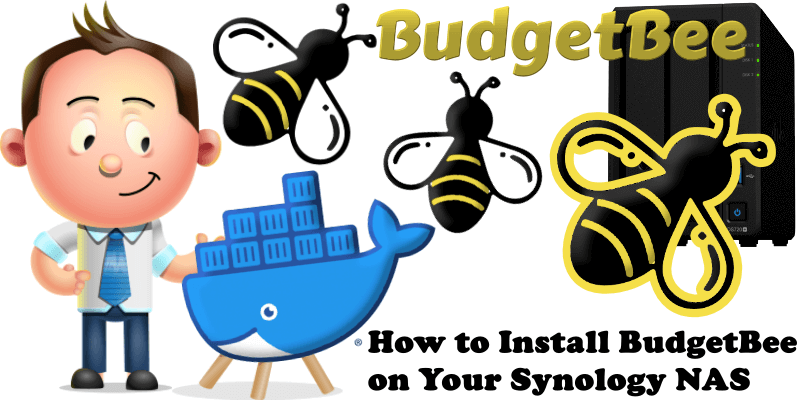
BudgetBee is a personal budget system. With BudgetBee you can easily manage your personal finances. It can help you keep track of your expenses and income so you can spend less and save more. In this step by step guide I will show you how to install BudgetBee on your Synology NAS using Docker & Portainer.
STEP 1
Please Support My work by Making a Donation.
STEP 2
Install Portainer using my step by step guide. If you already have Portainer installed on your Synology NAS, skip this STEP. Attention: Make sure you have installed the latest Portainer version.
STEP 3
Make sure you have a synology.me Wildcard Certificate. Follow my guide to get a Wildcard Certificate. If you already have a synology.me Wildcard certificate, skip this STEP.
STEP 4
Go to Control Panel / Login Portal / Advanced Tab / click Reverse Proxy. Follow the instructions in the image below.
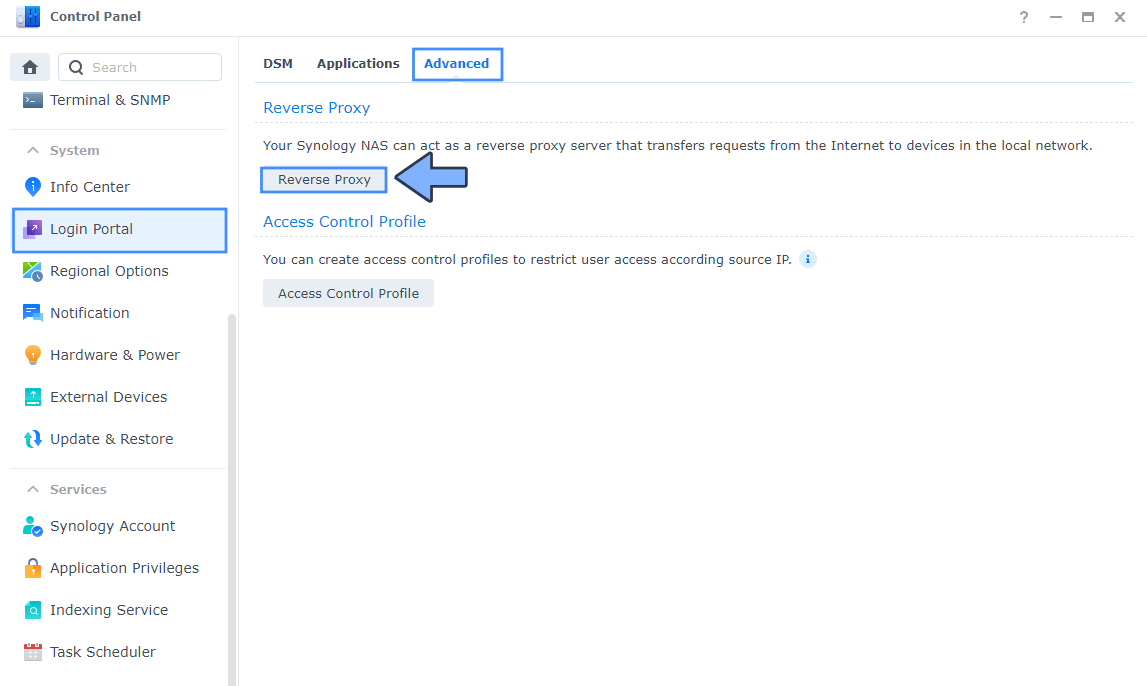
STEP 5
Now click the “Create” button. Follow the instructions in the image below.
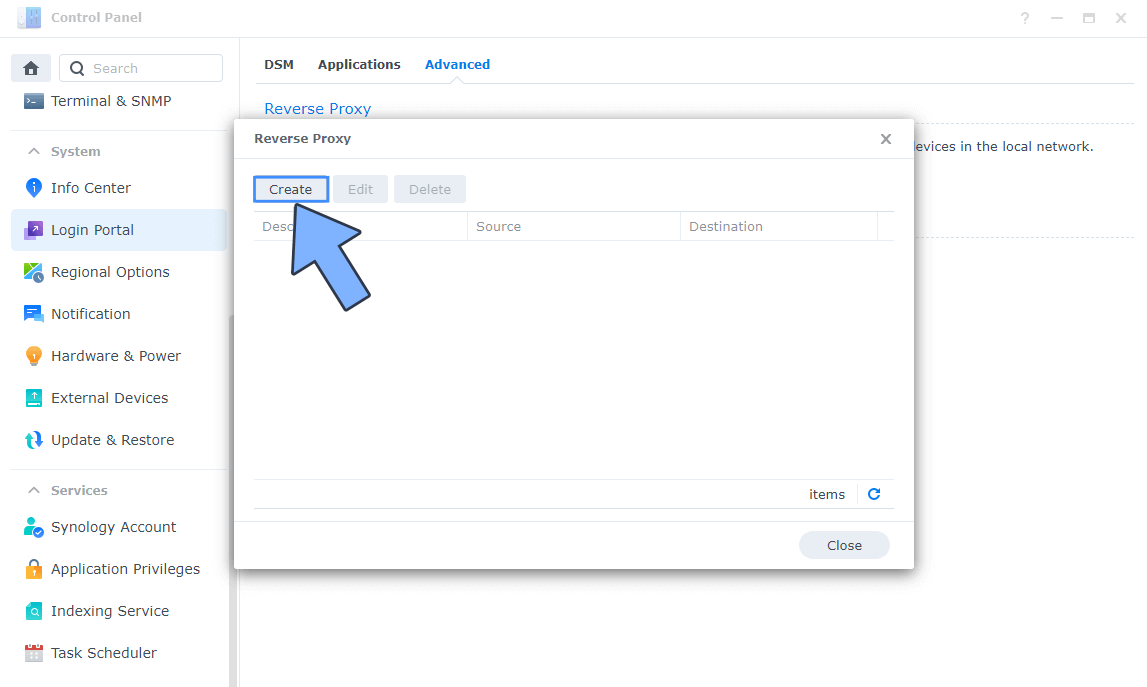
STEP 6
After you click the Create button, the window below will open. Follow the instructions in the image below.
On the General area, set the Reverse Proxy Name description: type in BudgetBee. After that, add the following instructions:
Source:
Protocol: HTTPS
Hostname: budgetbee.yourname.synology.me
Port: 443
Check Enable HSTS
Destination:
Protocol: HTTP
Hostname: localhost
Port: 8201
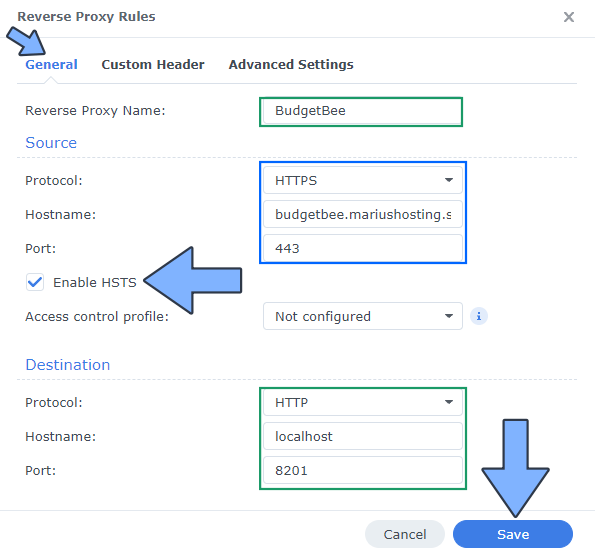
STEP 7
On the Reverse Proxy Rules click the Custom Header tab. Click Create and then, from the drop-down menu, click WebSocket. After you click on WebSocket, two Header Names and two Values will be automatically added. Click Save. Follow the instructions in the image below.

STEP 8
On the Reverse Proxy Rules, click the Advanced Settings tab.
- Increase the Proxy connection timeout from 60 to 600 seconds.
- Increase the Proxy send timeout from 60 to 600 seconds.
- Increase the Proxy read timeout from 60 to 600 seconds.
Click Save to save the settings.
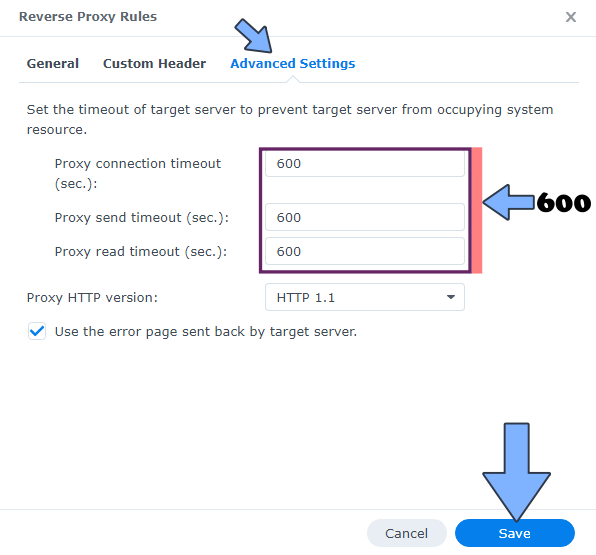
STEP 9
Go to Control Panel / Network / Connectivity tab/ Check Enable HTTP/2 then click Apply. Follow the instructions in the image below.
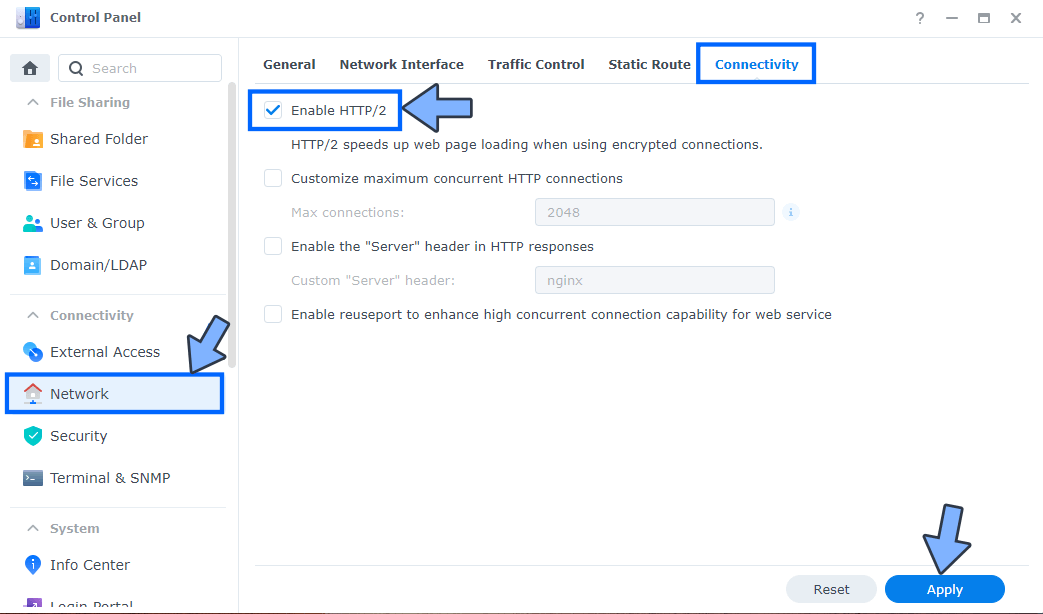
STEP 10
Go to Control Panel / Security / Advanced tab/ Check Enable HTTP Compression then click Apply. Follow the instructions in the image below.
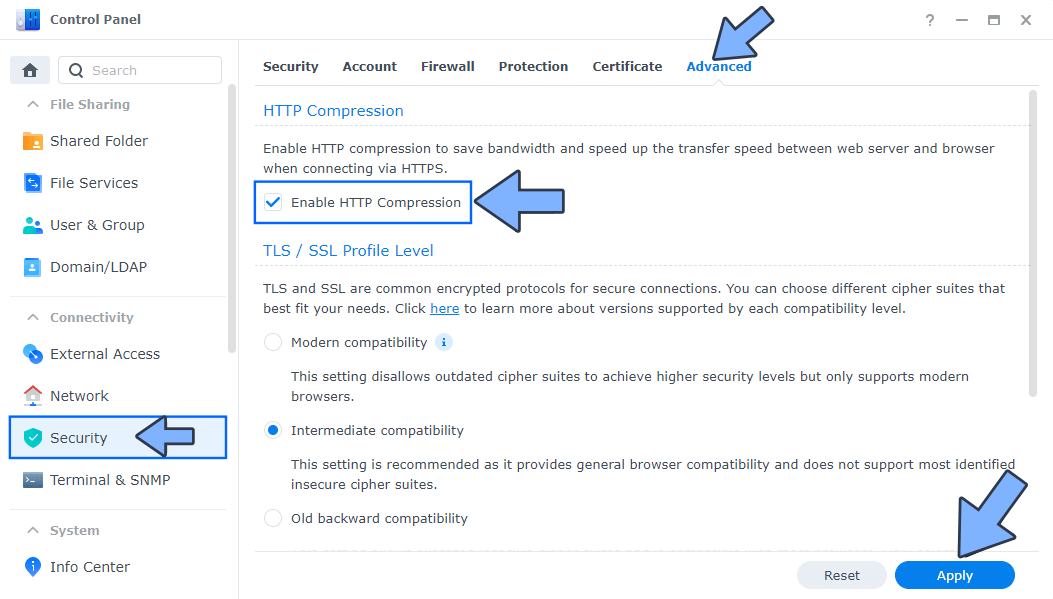
STEP 11
Go to File Station and open the docker folder. Inside the docker folder, create one new folder and name it budgetbee. Follow the instructions in the image below.
Note: Be careful to enter only lowercase, not uppercase letters.
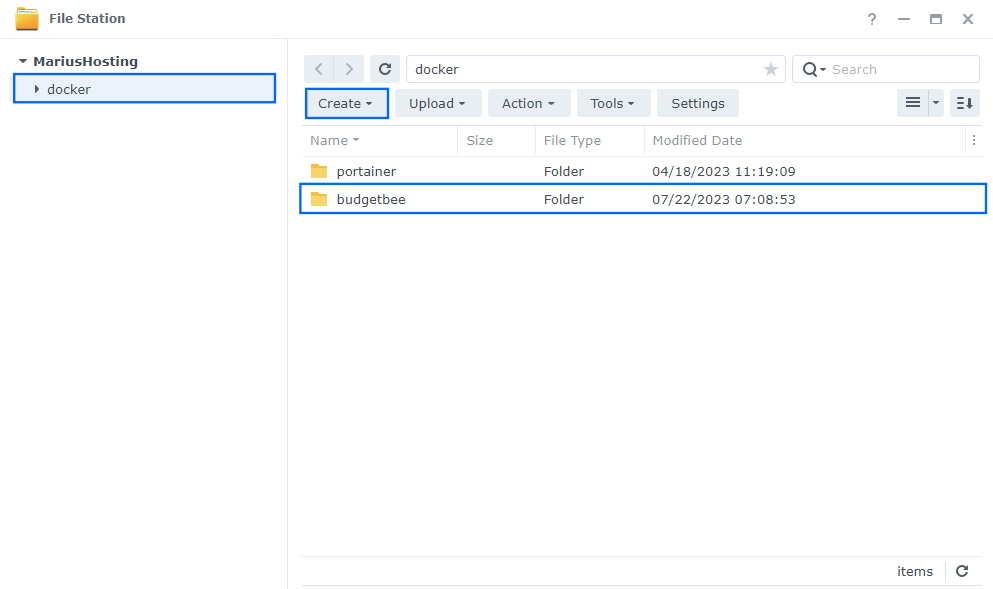
STEP 12
Log into Portainer using your username and password. On the left sidebar in Portainer, click on Home then Live connect. Follow the instructions in the image below.

On the left sidebar in Portainer, click on Stacks then + Add stack. Follow the instructions in the image below.

STEP 13
In the Name field type in budgetbee. Follow the instructions in the image below.
services:
db:
image: mariadb:11.8-noble #LTS Long Time Support Until October 15, 2033.
container_name: BudgetBee-DB
security_opt:
- no-new-privileges:false
volumes:
- /volume1/docker/budgetbee:/var/lib/mysql:rw
environment:
TZ: Europe/Bucharest
MARIADB_RANDOM_ROOT_PASSWORD: true
MARIADB_DATABASE: budgetbee
MARIADB_USER: budgetbeeuser
MARIADB_PASSWORD: budgetbeepass
restart: on-failure:5
backend:
image: ghcr.io/budgetbee/budgetbee/api:latest
command: sh entrypoint.sh
container_name: BudgetBee-API
hostname: webserver
security_opt:
- no-new-privileges:true
working_dir: /var/www/html
environment:
DB_HOST: budgetbee-db
DB_DATABASE: budgetbee
DB_USERNAME: budgetbeeuser
DB_PASSWORD: budgetbeepass
depends_on:
db:
condition: service_started
restart: on-failure:5
web:
image: ghcr.io/budgetbee/budgetbee/web:latest
container_name: BudgetBee-FRONT
hostname: web
security_opt:
- no-new-privileges:true
restart: on-failure:5
nginx:
image: ghcr.io/budgetbee/budgetbee/proxy:latest
command: nginx -g "daemon off;"
container_name: BudgetBee-NGINX
hostname: nginx
security_opt:
- no-new-privileges:true
healthcheck:
test: wget --no-verbose --tries=1 --spider http://localhost
ports:
- 8201:80
depends_on:
- backend
restart: on-failure:5
Note: Before you paste the code above in the Web editor area below, change the value for TZ. (Select your current Time Zone from this list.)
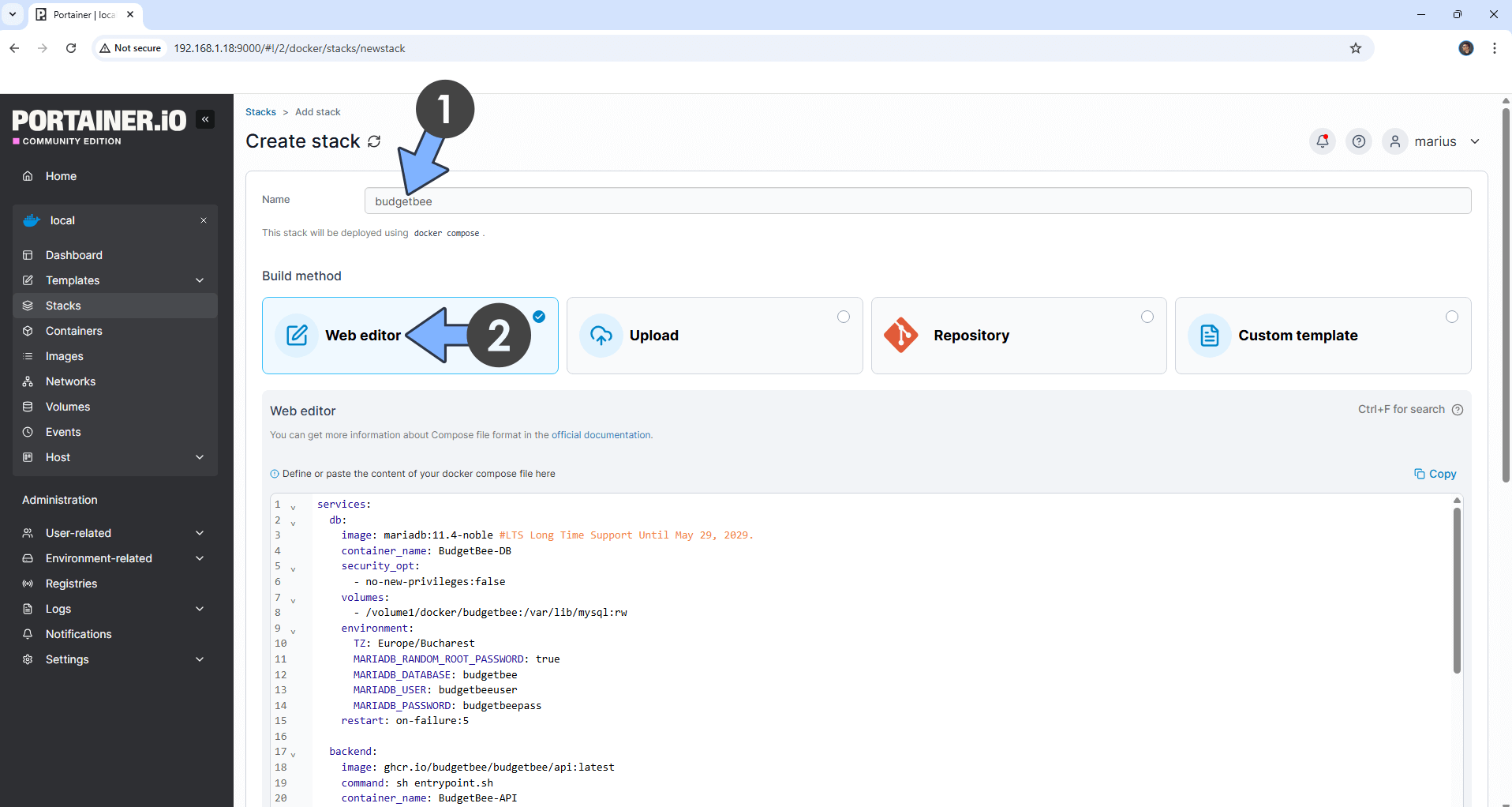
STEP 14
Scroll down on the page until you see a button named Deploy the stack. Click on it. Follow the instructions in the image below. The installation process can take up to a few minutes. It will depend on your Internet speed connection.
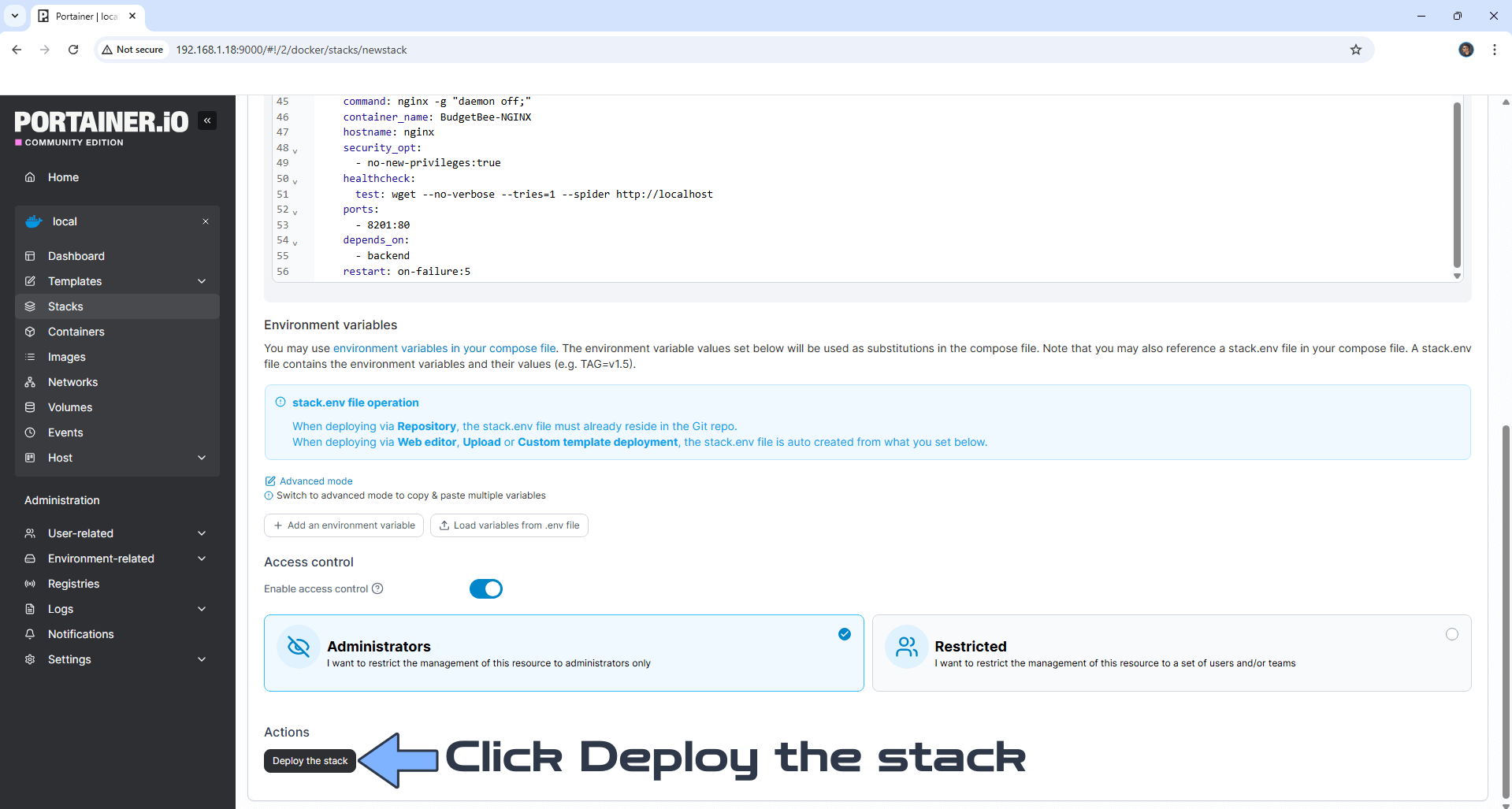
STEP 15
If everything goes right, you will see the following message at the top right of your screen: “Success Stack successfully deployed“.

STEP 16
Create your admin user. On the left sidebar in Portainer, click Containers. Identify your BudgetBee-API instance, then click on the little terminal icon. Follow the instructions in the image below.
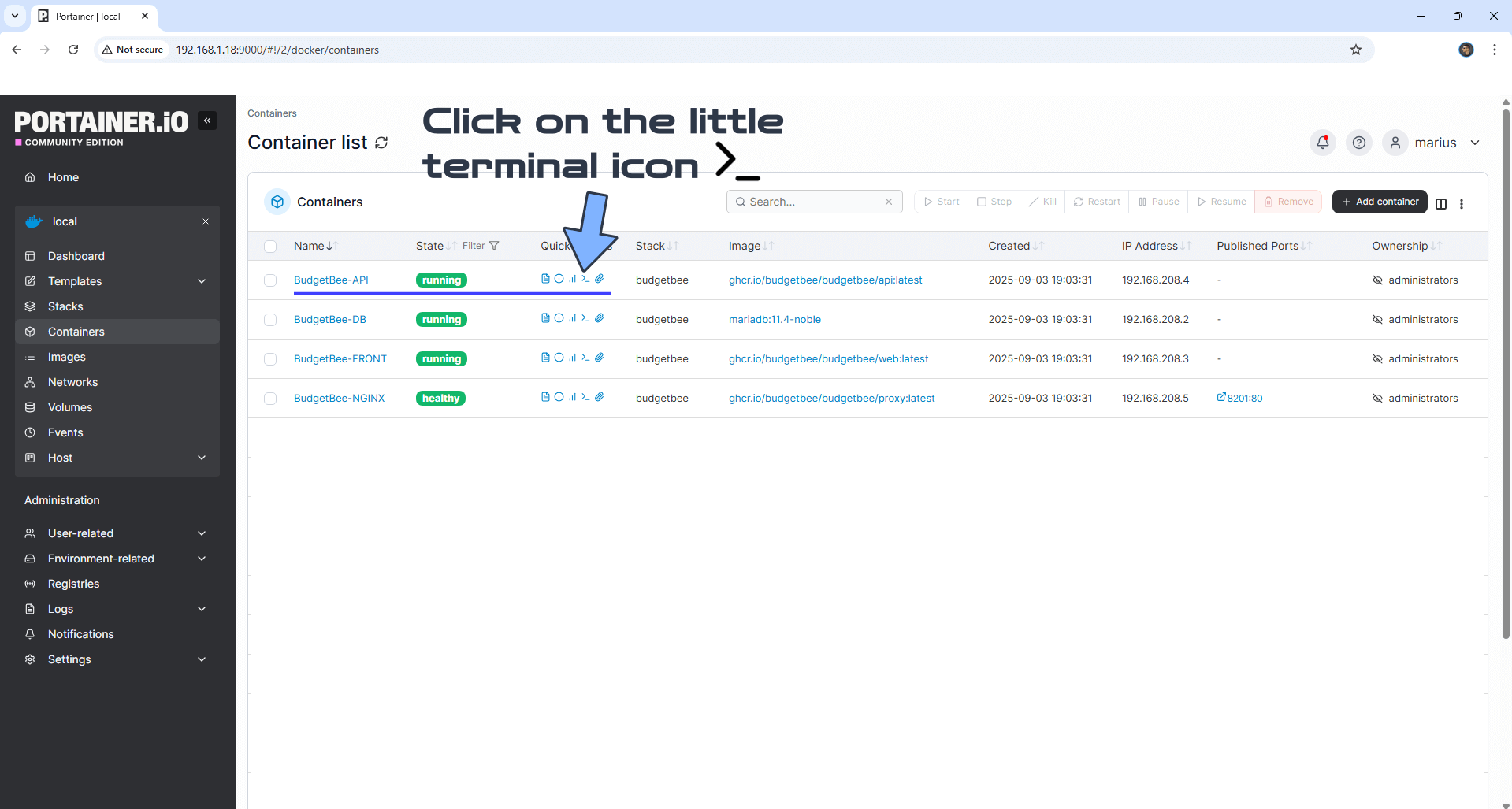
STEP 17
After you click on the little terminal icon at STEP 16, a new page will open. From the drop-down Command menu select /bin/ash then click Connect. Follow the instructions in the image below.
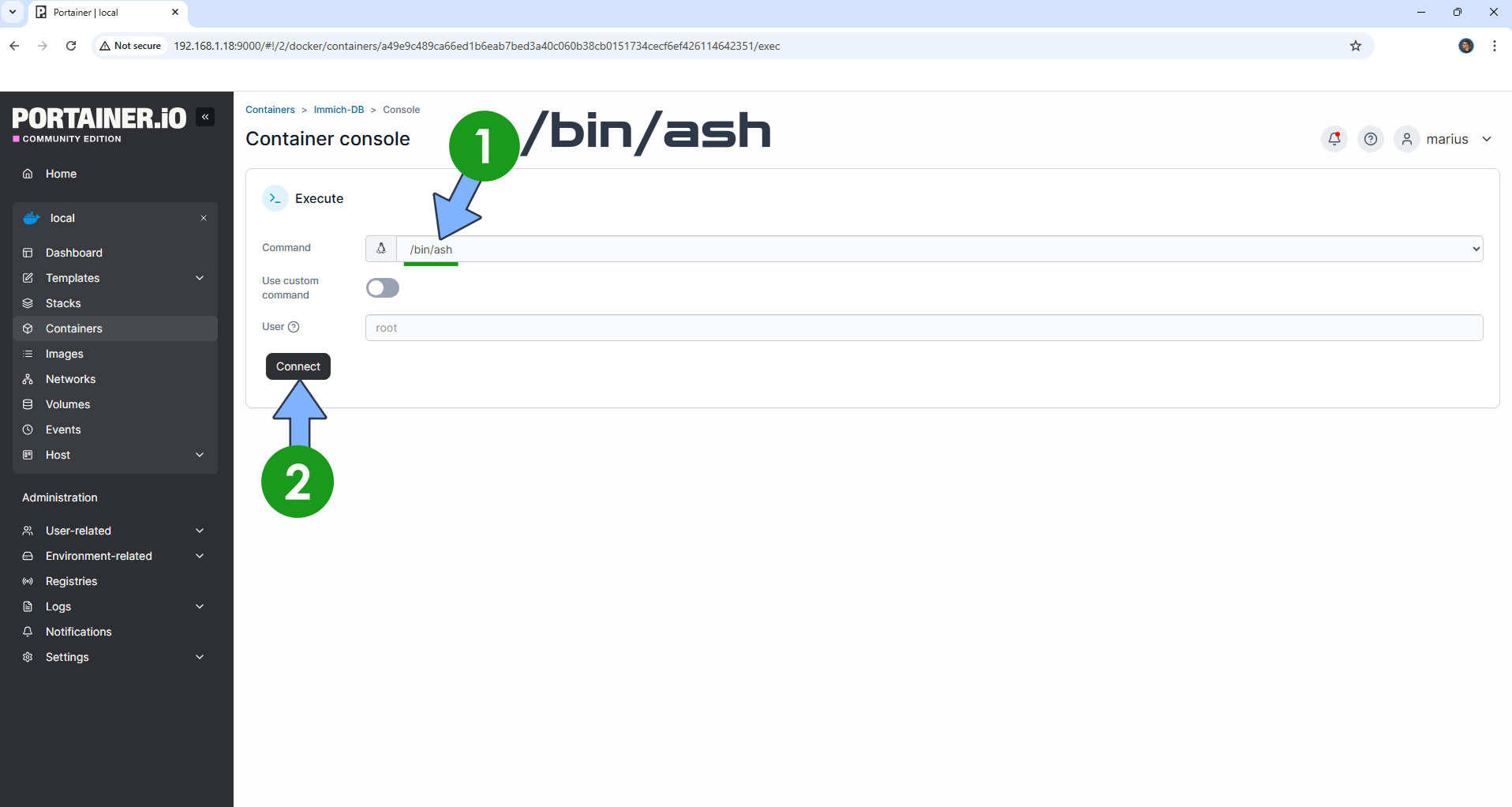
STEP 18
After you click Connect at STEP 17, a Console will open. Copy paste the code below and confirm by pressing Enter on your keyboard to start the admin rights process. Follow the instructions in the image below.
php artisan migrate --force
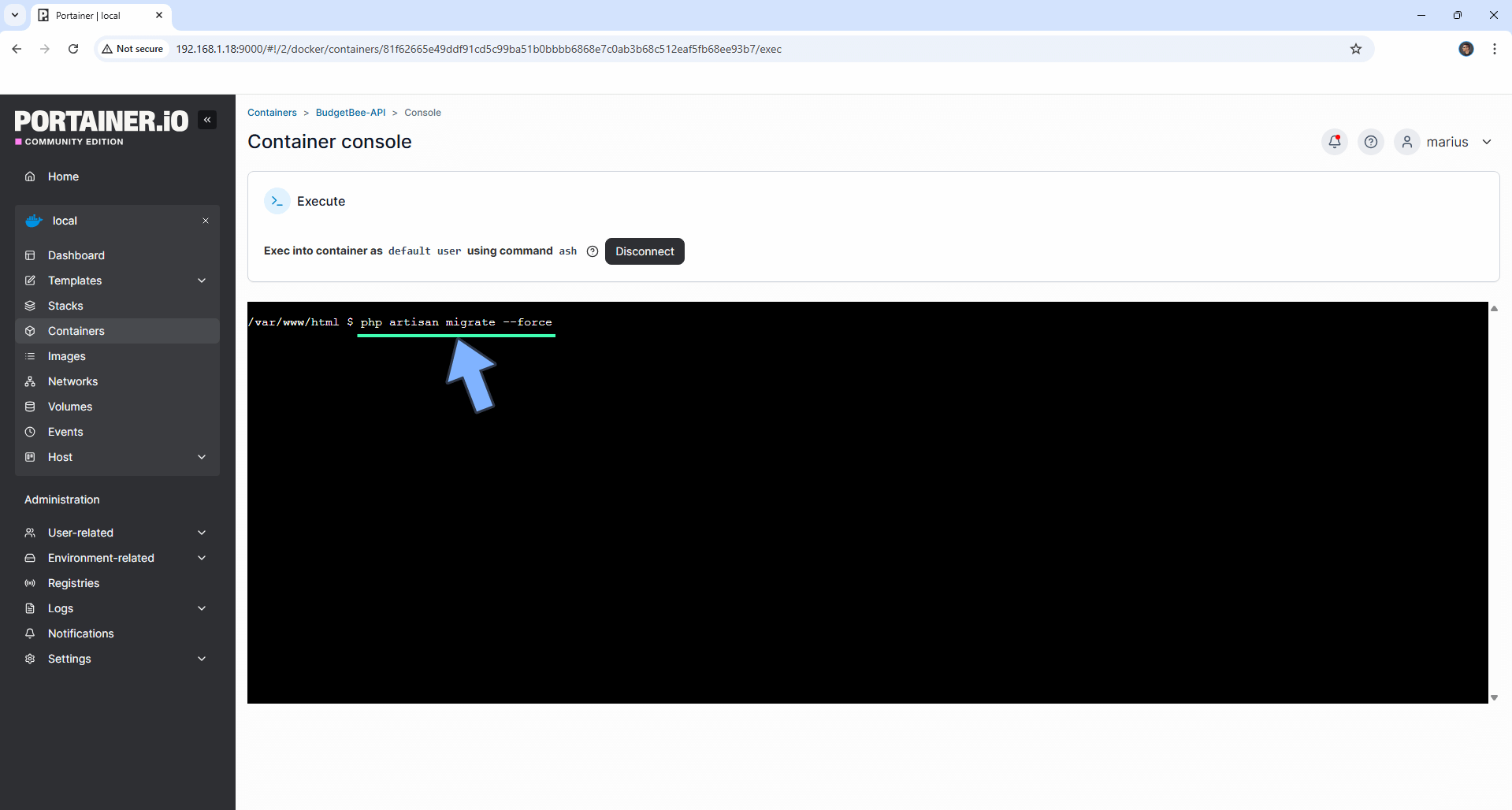
STEP 19
After the migration table is complete, copy paste the code below and confirm by pressing Enter on your keyboard to start the admin rights process. Follow the instructions in the image below. mariushosting is an example for a password you should use your own password. ⚠️Warning: Do NOT use a password with special characters. If you want to use special characters, make sure that your password is surrounded by “. Example of a password with special characters: “mariu$@hosting“
php scripts/create_user.php admin yourownemail mariushosting
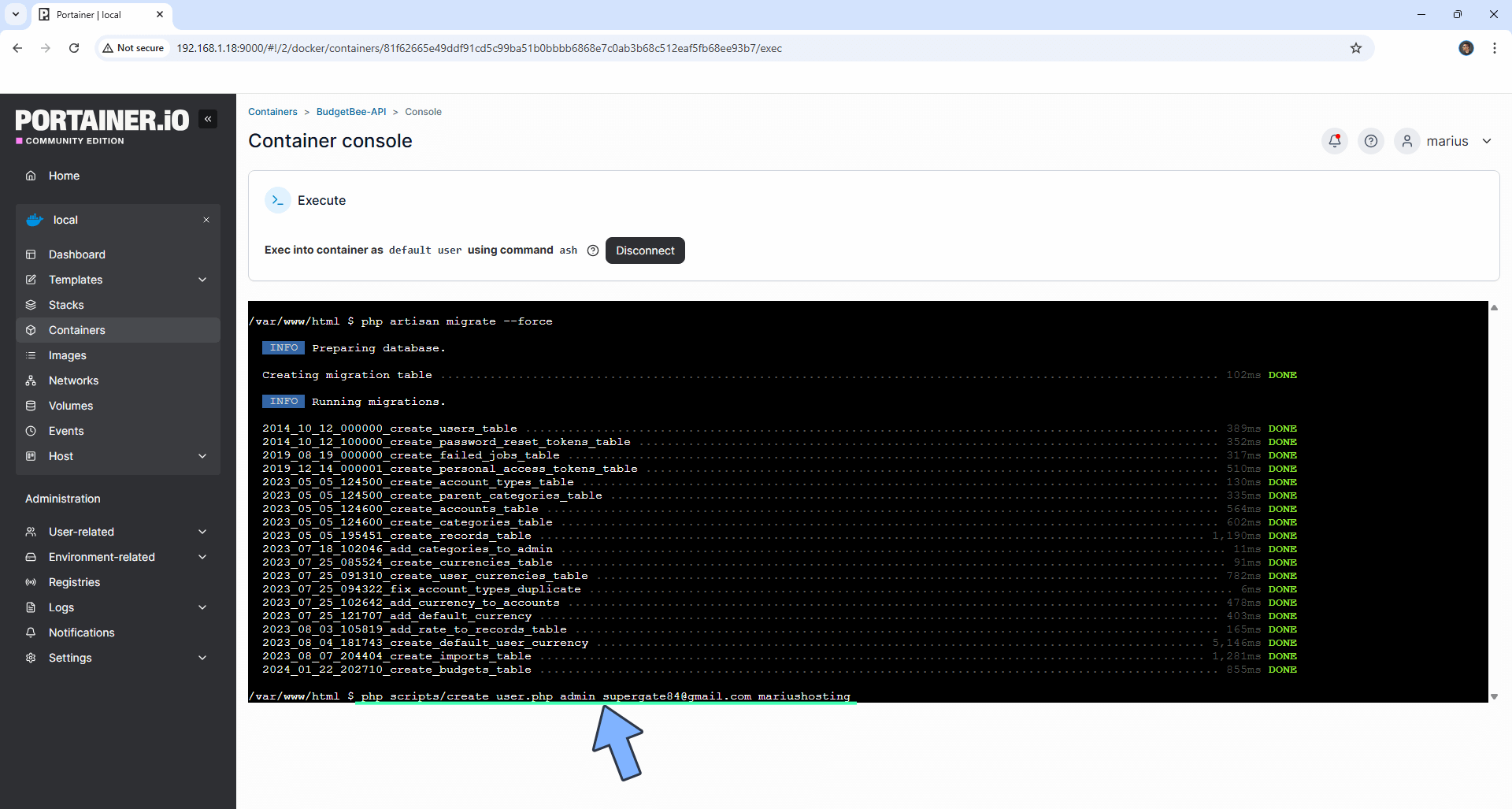
⚠️Warning: Do NOT use a password with special characters. If you want to use special characters, make sure that your password is surrounded by “. Example of a password with special characters: “mariu$@hosting“
STEP 20
After you press Enter on your Keyboard at STEP 19, you will get a message that says: “User created successfully“. Follow the instructions in the image below.
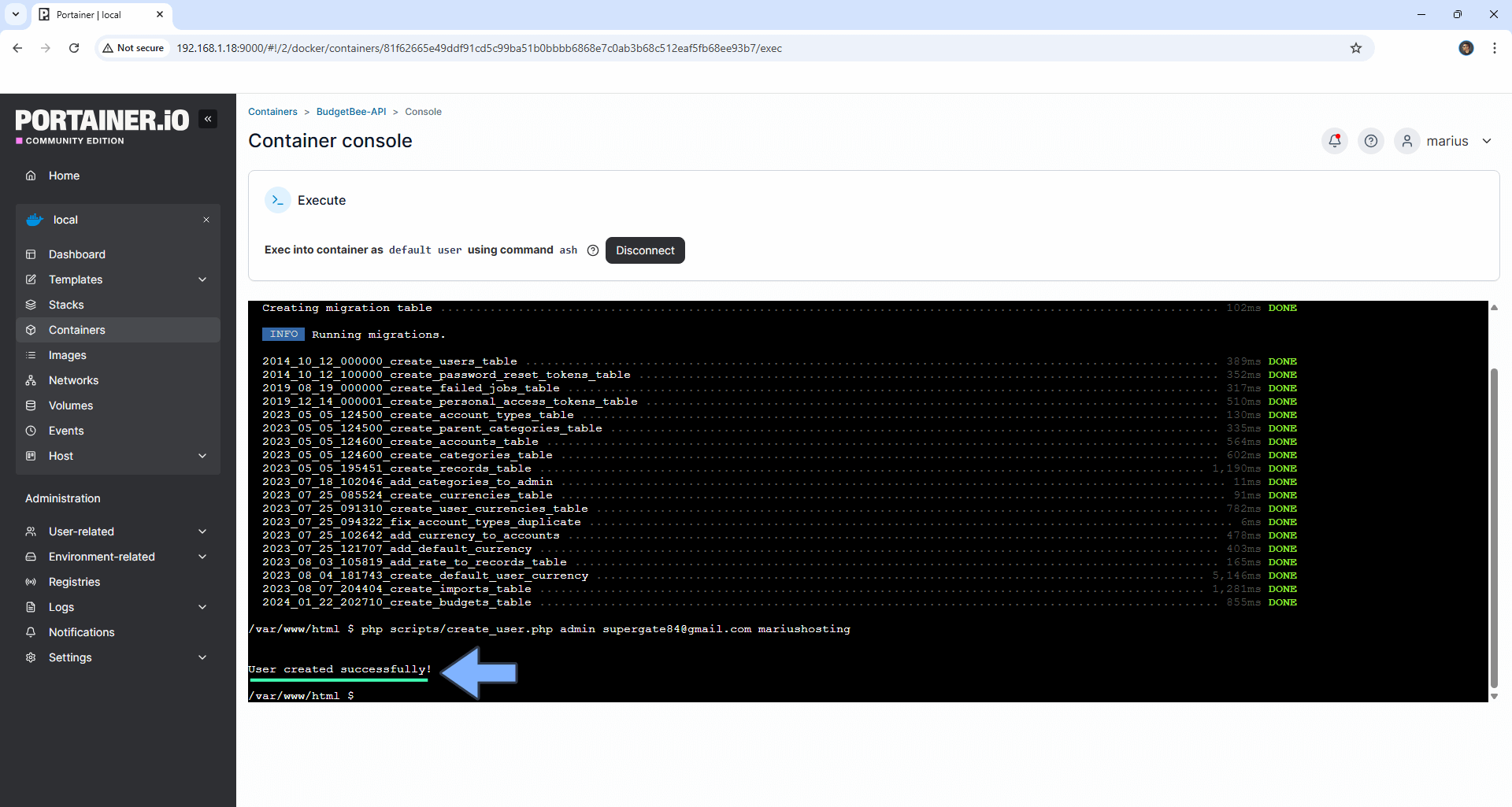
STEP 21
On the left sidebar in Portainer, click Containers. Identify all your BudgetBee instances, select them then click Restart. Follow the instructions in the image below.
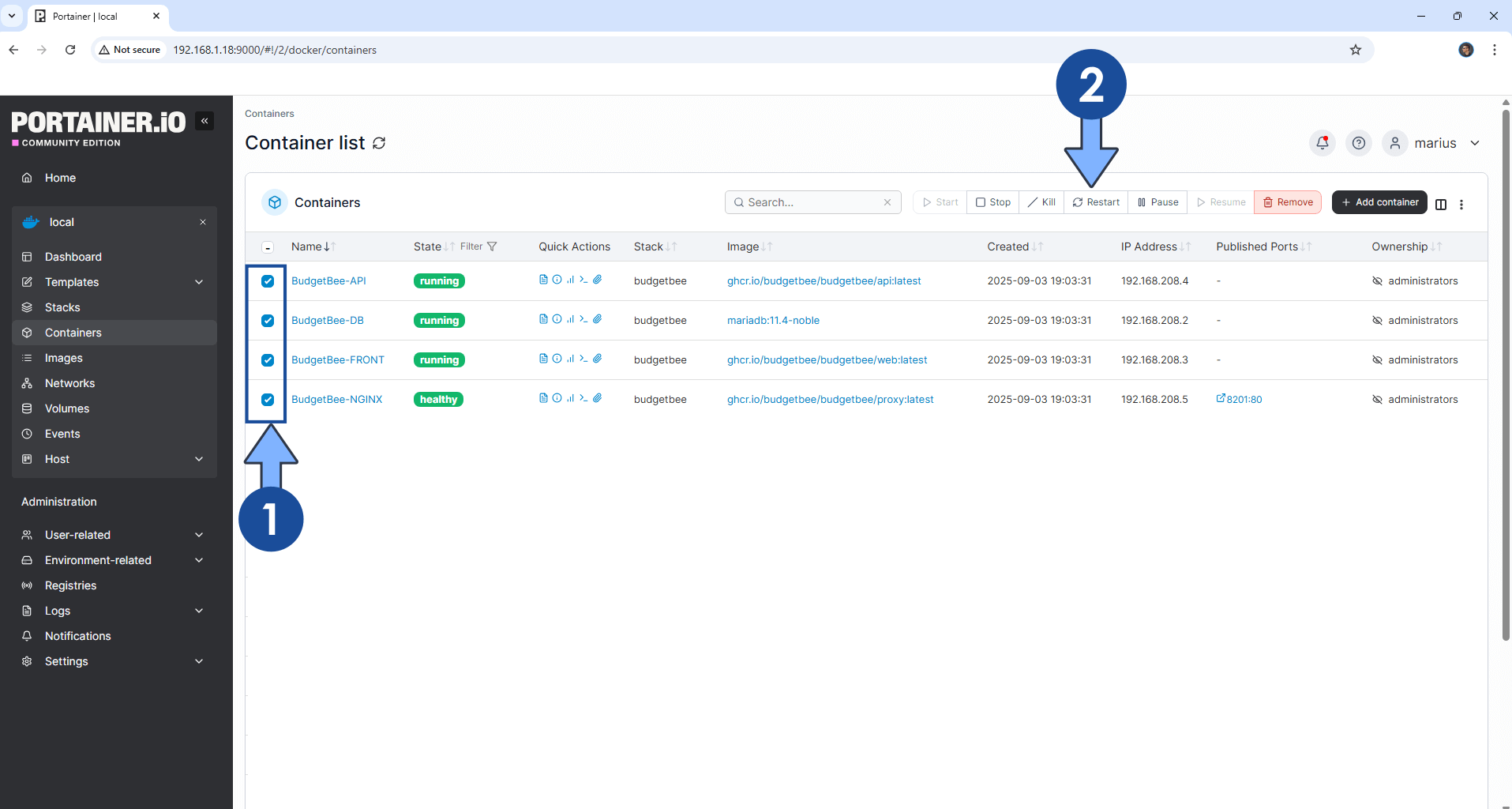
STEP 22
🟢Please Support My work by Making a Donation. Almost 99,9% of the people that install something using my guides forget to support my work, or just ignore STEP 1. I’ve been very honest about this aspect of my work since the beginning: I don’t run any ADS, I don’t require subscriptions, paid or otherwise, I don’t collect IPs, emails, and I don’t have any referral links from Amazon or other merchants. I also don’t have any POP-UPs or COOKIES. I have repeatedly been told over the years how much I have contributed to the community. It’s something I love doing and have been honest about my passion since the beginning. But I also Need The Community to Support me Back to be able to continue doing this work.
STEP 23
Now open your browser and type in your HTTPS/SSL certificate like this https://budgetbee.yourname.synology.me In my case it’s https://budgetbee.mariushosting.synology.me If everything goes right, you will see the BudgetBee Sign in page. Type in your own email address and password that you have previously created at STEP 19. Click Sign in. Follow the instructions in the image below.
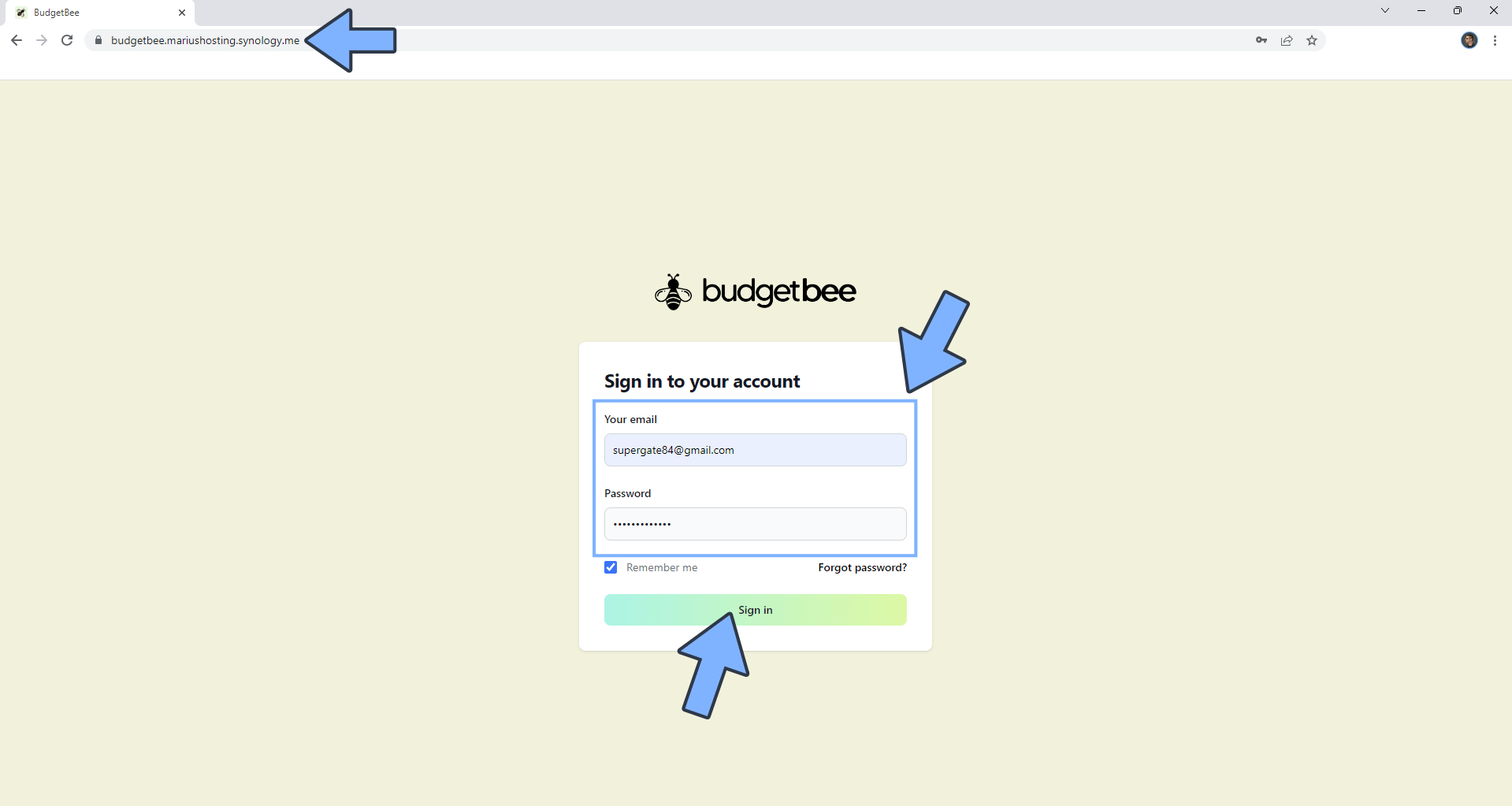
STEP 24
Start using BudgetBee!
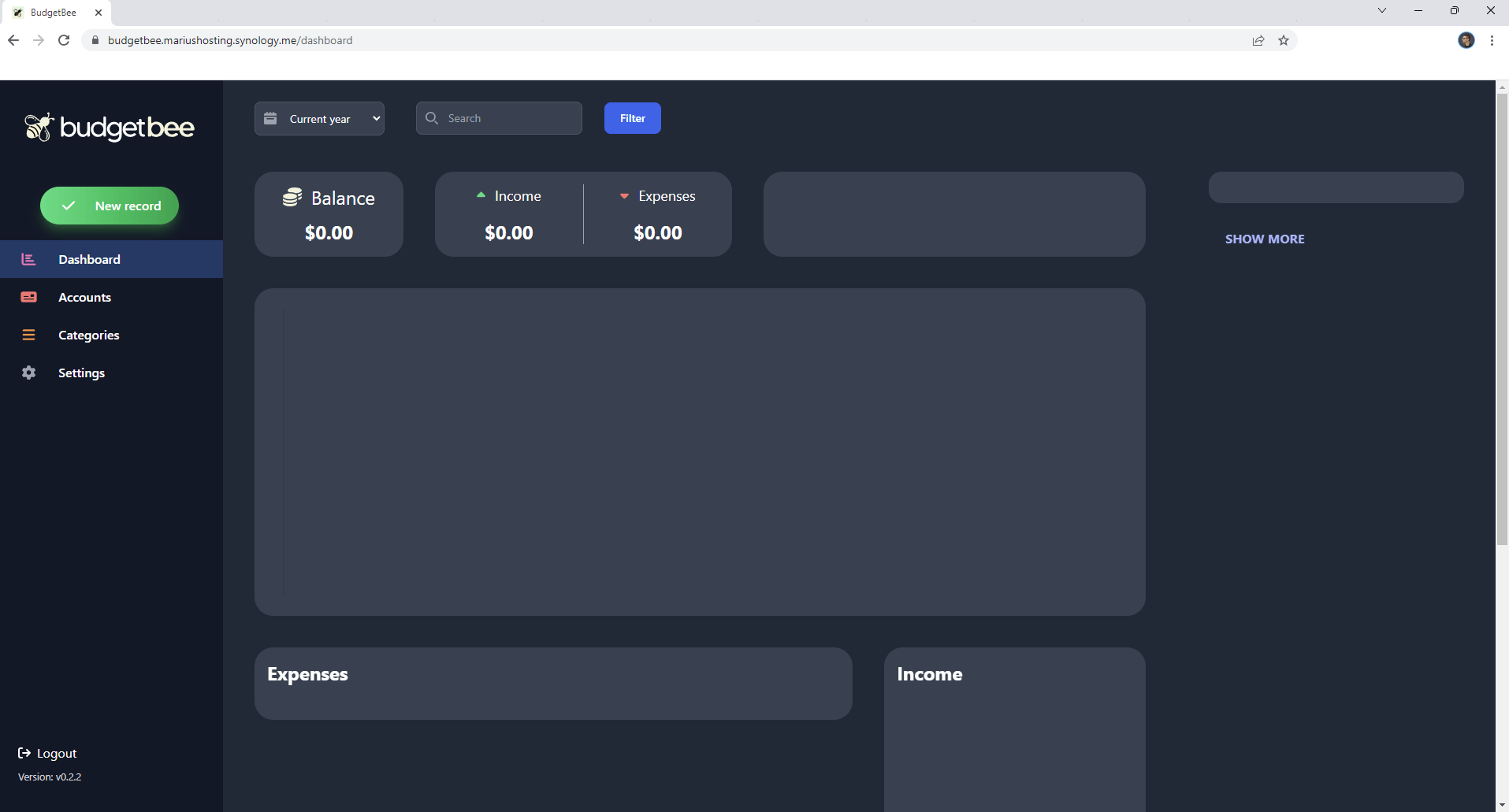
STEP 25
Your BudgetBee dashboard at a glance!
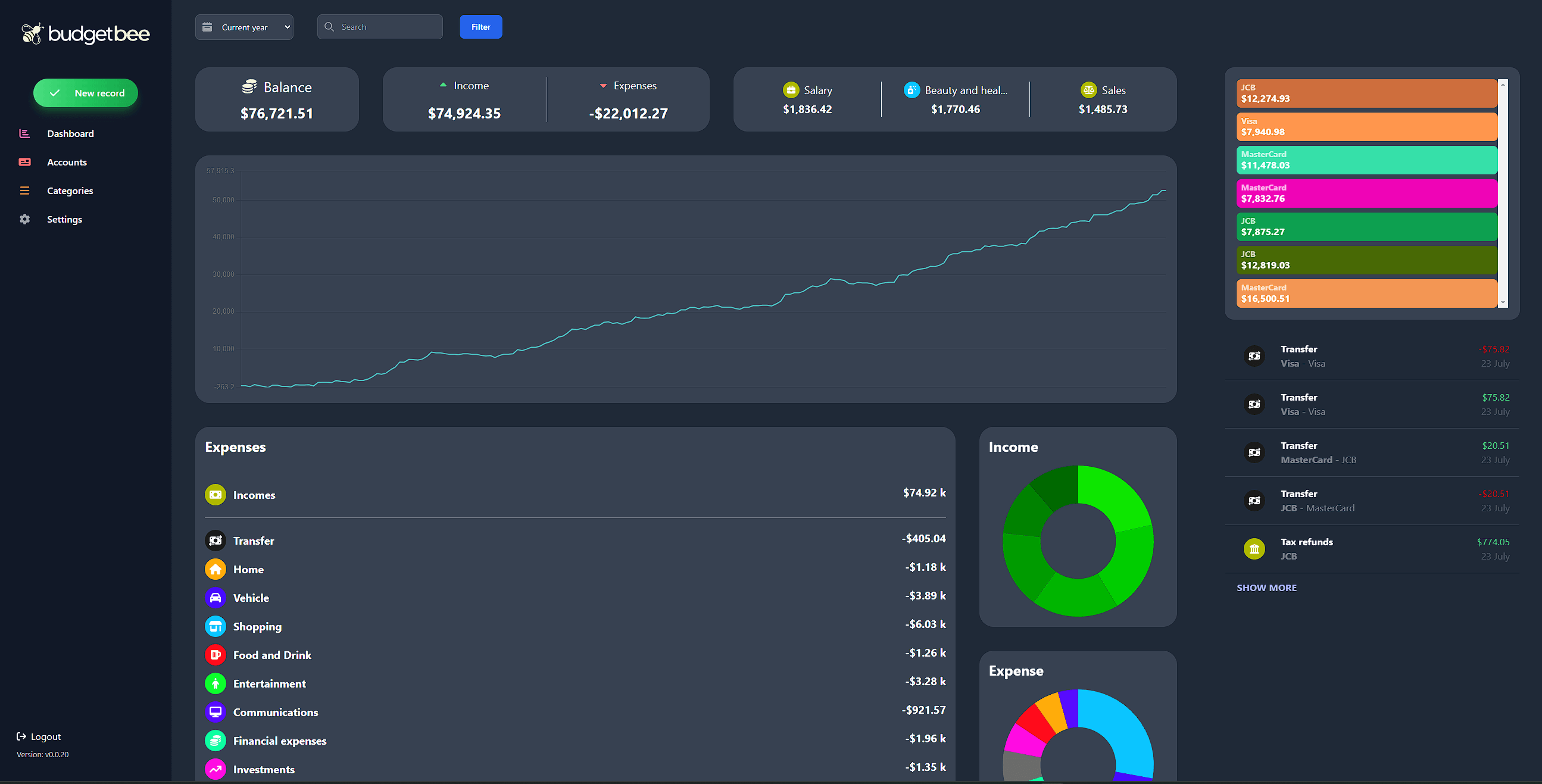
Enjoy BudgetBee!
If you encounter issues by using this container, make sure to check out the Common Docker issues article.
Note: Can I run Docker on my Synology NAS? See the supported models.
Note: How to Back Up Docker Containers on your Synology NAS.
Note: Find out how to update the BudgetBee container with the latest image.
Note: How to Free Disk Space on Your NAS if You Run Docker.
Note: How to Schedule Start & Stop For Docker Containers.
Note: How to Activate Email Notifications.
Note: How to Add Access Control Profile on Your NAS.
Note: How to Change Docker Containers Restart Policy.
Note: How to Use Docker Containers With VPN.
Note: Convert Docker Run Into Docker Compose.
Note: How to Clean Docker.
Note: How to Clean Docker Automatically.
Note: Best Practices When Using Docker and DDNS.
Note: Some Docker Containers Need WebSocket.
Note: Find out the Best NAS Models For Docker.
Note: Activate Gmail SMTP For Docker Containers.
This post was updated on Thursday / February 5th, 2026 at 5:26 PM
